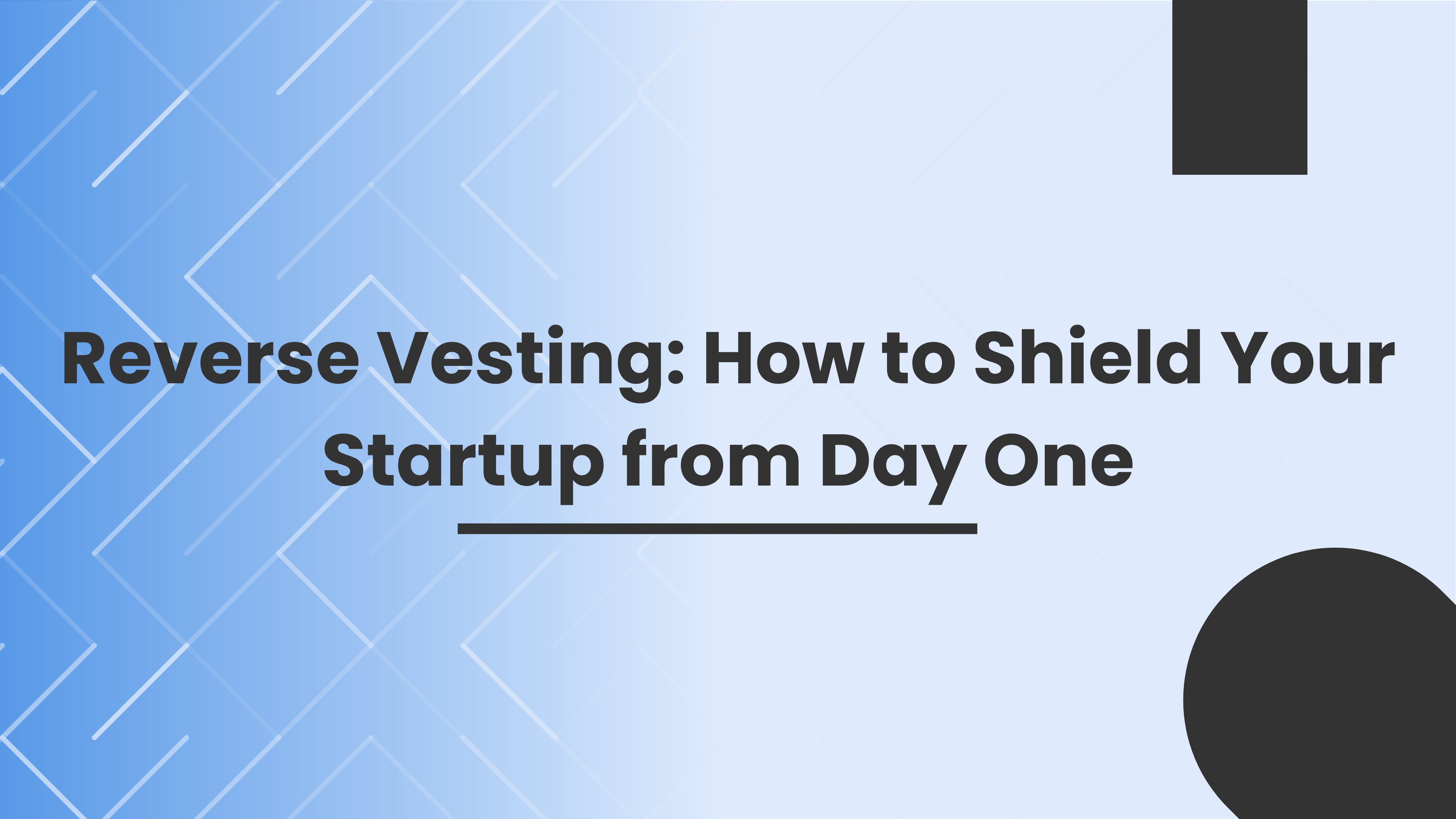Reverse Vesting: How to Shield Your Startup from Day One

Content:
When you launch a startup with partners or co-founders, excitement and trust are through the roof. But the truth is, projects change and people move on… and if the equity split isn’t clearly defined from the start, you could end up losing much more than just a friendship.
That’s where a tool increasingly used by investors and entrepreneurs around the world comes into play: reverse vesting.
What is reverse vesting?
Reverse vesting is an agreement that requires founders to “earn” their shares over time. If one of them leaves before the agreed period ends, they lose part of their equity, which returns to the company or to the other partners.
It acts like insurance to protect the project if someone jumps ship too early.
Why is it called “reverse”?
Because it’s the opposite of traditional vesting, which is typically used with employees. In regular vesting, shares are granted gradually. In reverse vesting, the founder already owns the shares, but will lose them if certain milestones or timeframes are not met.
Why is it important for a startup?
-
Prevents deadlock: If a founder leaves with 25% of the company and stops contributing, it can block decisions and discourage future investment rounds.
-
Builds investor confidence: A clear reverse vesting plan shows that the founding team is committed long term.
-
Protects equity: It allows shares to be redistributed to those who actually stay and continue adding value.
How does it work?
Typically, a reverse vesting agreement includes:
-
Vesting period: Usually 3 to 4 years.
-
Initial cliff: For example, 1 year. If a founder leaves before that, they lose all their shares.
-
Release schedule: After the cliff, shares are released monthly or quarterly.
Real-life example:
Imagine you’re a co-founder with 30% equity. You sign a 4-year reverse vesting agreement with a 1-year cliff.
If you leave after 6 months, you lose 100% of your shares.
If you leave after 18 months, you only keep 12.5%.
Who should have reverse vesting?
-
Early-stage co-founders
-
Partners who haven’t yet contributed all the promised value
-
Founders joining with equity but no salary
-
Teams joining later as “late co-founders”
What if the founder already owns the shares?
It’s common for shares to be assigned when the company is incorporated. In these cases, the reverse vesting agreement can include a buyback clause, allowing the company or remaining founders to repurchase the shares at a symbolic price if the founder leaves early.
This should be clearly defined from the beginning, with proper legal guidance, and reflected in the shareholders’ agreement or the company bylaws.
Is reverse vesting legal?
Yes. In most jurisdictions, including Spain, reverse vesting can be legally implemented through:
-
Shareholders’ agreements or private contracts
-
Amendments to company bylaws
-
Conditional share purchase agreements
That said, it’s not something you can apply casually or copy-paste from the internet. It requires solid legal and tax planning, especially to define buyback conditions, timelines, and how valuation will be handled.
So if you’re considering applying reverse vesting in your startup, it’s best to do it with the support of professionals who understand both Spanish law and the reality of how startups work.
What do investors think?
They love it. A good reverse vesting scheme reduces risk and reflects a professional, committed founding team.
In fact, many venture capital funds require it before investing. If you're raising funds, having reverse vesting in place can play in your favor.
Conclusion
Reverse vesting isn’t about mistrust it’s a smart tool for long-term commitment and protection, for both founders and the future of the company.
If you’re starting a company or joining one as a partner, make sure this is clearly addressed from the beginning. It could be the difference between a scalable startup and one that fails before taking off.
Want to implement a reverse vesting scheme with your co-founders?
At InnoTaxes, we help startups design solid legal frameworks from day one, so you can grow with clarity, protection, and mutual trust.
Contact us here and secure your company’s future today.